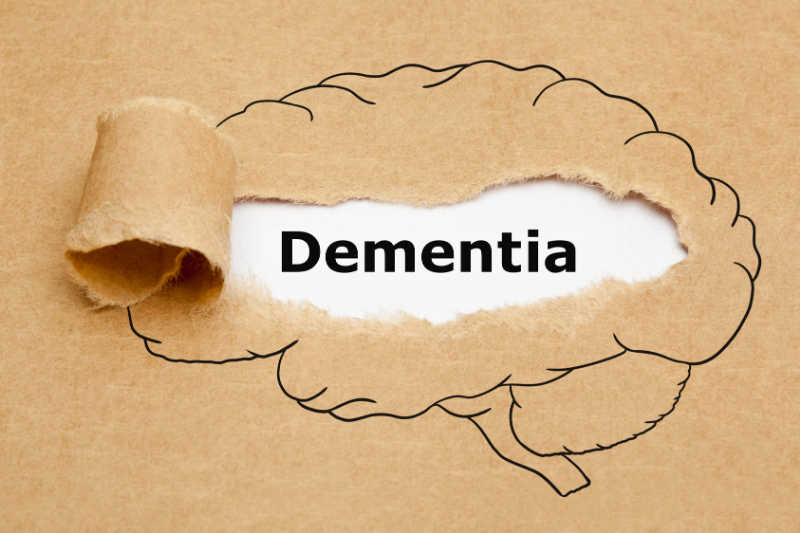3 Common Discoveries when Caregiving a Partner with Dementia
You’ve partnered with your spouse through years of joys and trials, maybe even significant health crises, and managed to find your way through it together. And then you start to notice something that feels different - a decline in your life partner that indicates something they won’t recover from - something that problem solving won’t heal. The first signs might be starting to forget things, saying things to people that are out of character, starting to have emotions that feel out of scope to the circumstance, becoming confused by things they usually feel clear about, or starting to repeat stories thinking they are sharing them for the first time. It’s not always obvious at first, what this all means, but it’s concerning, so you start the journey of looking into what might be causing it. When the doctor names the diagnosis of dementia, it can hit you like a ton of bricks. Now what? The future feels so unknown, even if you think you know what dementia entails. It truly is a personal journey of discovery - both about how dementia will develop for your loved one, and how it will impact you and your life.

There is no one article that could possibly fully capture the depth and breadth of your experience, but it could be helpful to acknowledge some of its threads. A shared experience among partners finding themselves in this situation, is that it is fraught with loneliness. How ironic is that? The thing you experience together, is the thing that makes you feel alone in it. My hope is that in naming just a few of the common discoveries caring partners make on their journeys with dementia, we take that loneliness down a small notch. I want you to feel witnessed and honored as you walk this gravel road with heart.
The first common discovery is the reality of a shrinking world before you are ready for it.
As your partner’s risks increase and their ability to engage friends, family and public situations changes or diminishes, you end up being the default adjuster to their newly sized sphere of living. You can’t leave your home as freely, do errands as efficiently, or travel together in the way you dreamed of. Daily tasks now take double the consideration, explaining things or reminding about what’s on the calendar becomes a regular thing, and you might notice that friends start to distance themselves or change the way they relate to you. It’s a painful pivot, to say the least, and it creates a gap between what your partner needs to thrive, and what you need to thrive. That increasing distance between needs is no small challenge to face. Finding ways to recreate a lifestyle that honors your distinct paths, can feel daunting, ever changing, and isolating.
Partners of people with dementia frequently feel surprised by their out-of-character anger and frustration in reaction to what they think of as minor or insignificant changes.
It can show up like an unwelcome Jack-in-the-box. You find yourself snapping harshly when your spouse tells a story for the umpteenth time, when they get up in the middle of the night and eat something absurd, or when you discover in the morning that the doors were left unlocked. Guilt and shame can kick in quickly after anger finds its voice, seeing the more vulnerable person standing before you again and knowing they didn’t deserve the snap back. It’s quite the process to put this guilt out on the table and try and understand what’s actually happening there. You might not recognise yourself. Here are the nuts and bolts of it - you are grieving in real time. The new sharpness of your emotions is instinctive and a way to protect yourself in the face of fear. It’s scary to be caught off guard by the new risks their forgetfulness highlights. A part of you is feeling helpless in that moment, overwhelmed, and aware of what you are losing. It’s fair to feel annoyed, frustrated, and angry - it is a natural response. It’s your body’s way of trying to fight back against this painful loss. It’s important to separate the fairness of what you are feeling from what you know the recipient deserves. Be careful not to beat yourself up for your reactions. You are on a journey of acceptance of these losses, and that is a process. It remains true that you care and respect the partner in front of you. It’s not them that you are angry with, it is the loss. Have compassion for yourself as you work this through.
The need for outside support.
Many of us are used to feeling quite capable of problem solving on our own. It is a stretching experience to realise that caring for someone with dementia is bigger than any one person can hold or offer. It truly takes an increasing team as your partner’s needs grow. This network of support will be unique to your circumstances. It might include specific family members, finding professional help to offload household maintenance, locating government services that assist in health care both in and out of the home environment, considering long term plans for living locations, learning new skills around finances, or getting connected to others who are walking a similar journey for that emotional support.
Whatever your next steps include, my hope is that you do it in tandem with people who care about you and have the ability to come alongside you. You are capable and brave, and your strength is tripled when you walk the journey in community.
If you are looking to open a door to some added support, an option available to you is a monthly gathering of caregiving partners in Langley, BC. I facilitate this as a counsellor who wants to provide the opportunity for folks to come together in an emotionally safe way, to journey together, and as someone whose parents have walked this themselves. We can walk with a lighter load when we expand our networks of support. To learn more about this open door, email me at karenpeters@thrive-life.ca.
Beside you,
Karen

